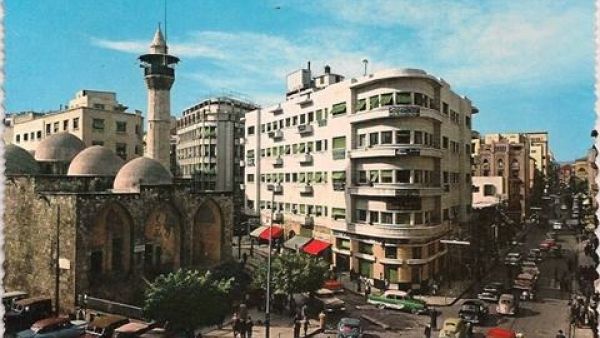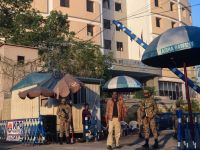For most Lebanese, pre-1975 Lebanon is but a fading memory. Much has changed since then, in terms of urban landscapes, traditions and ways of life.
The long and bloody 1975-1990 Civil War and successive severe political crises that followed the 2005 assassination of former Prime Minister Rafik Hariri have transformed the country and its identity.
But the good old days and the collective memory of coexistence and a simpler life won’t soon be lost thanks to three men: brothers Mustafa and Hilal Kabbara, and Abdullah al-Halabi, who is better known as Michael.
Together, they launched four Facebook pages: Lebanese Jumble Club, Tripoli in Black and White, Tripoli in Color and Tripoli Art in Black and White and Color. Through these pages, the three seek to immortalize Lebanon’s traditions of coexistence and peace by posting photos of the country’s cities, artists, politicians, celebrities and anything that invokes the memory of a more cohesive era.
“We all met for the love and dedication to Lebanon, which had been wronged in the media and as a result had suffered distortion to its reputation at the regional and international level,” Hilal tells The Daily Star.
Hilal took the initiative first, proposing the idea of the Lebanese Jumble Club page.
“The idea of creating such pages has been in mind for a long time, but the presence of Facebook ... made the creation easy and, of course, the love for Lebanon was a strong incentive for the establishment of these pages and especially Lebanese Jumble Club to publicize and disseminate files, videos and images electronically,” Hilal adds.
Hilal says it is necessary to inform people on the local, regional and international levels about the richness of the country in terms of its heritage, the goodness of its people and their ability to coexist, contrary to what some media outlets report.
“Having got a great interest in physically collecting antiques, pictures and oldies has also been a good reason for sharing them with others,” Hilal adds. Hilal works as a senior lecturer at the University of Central Lancashire in Preston, England, where he has been living for over 28 years.
The pages, established over the past year, are updated on a daily basis. The photos come from a mixture of sources, Hilal says, some from personal collections the pages’ managers inherited or gathered by themselves, others from fans of the pages and close friends, magazines, newspapers, old books, government libraries worldwide and the Internet.
They feature rare photos of Lebanese cities and districts pre-1975. The collections include photos of old Downtown Beirut with its bustling ancient souks, tramways, Ottoman-era buildings along with Martyrs’ Square, its famous Rivoli Cinema building and palm trees.
Other photos show Hamra Street, the capital’s seafront, airport, Tripoli’s train station in the early 20th century and other landmarks of Lebanon.
Also displayed are old photos of Lebanese in traditional clothes, photos of Lebanese politicians, artists and singers from the last century.
“I post new photos on a daily basis. I have Internet at my office, home and mobile,” Mustafa says.
But he adds that he never interrupts his work to manage the pages, as he’s the mukhtar of the Al-Mahatira neighborhood of Tripoli. He explains he has a huge collection of photos that grows every day.
Though the three men are working toward the same goal, the brothers have never met their collaborator Halabi, since he’s lived in the United States for the past 20 years.
“We knew each other via Internet. Common fields of interest have brought us together,” he says.
Mustafa boasts that thousands of people have joined the four pages. Tripoli in Black and White has over 5,000 “likes.”
“We are attached to Lebanon and to Tripoli, our city,” he says. “We yearn for all old traditions and ways of life.”
Hilal says that his brother’s contribution to the pages is essential: “[His] presence with us is very important as a strong link to Lebanon in general and Tripoli city in particular, being highly knowledgeable of people of Tripoli, landmarks, streets and alleys.”
He explains that the three of them coordinate and discuss ideas ahead of posting photos.
“In fact, there is continuous coordination between us as we consult and exchange views on topics and ideas to be raised on historical pictures and/or social issues, etc., and therefore we operate as one body complementing one another,” he says.
Many people have expressed their admiration for the message behind launching these pages, which Hilal says “calls for love, tolerance, respect and acceptance of others.”
“We have a great faith that the insistence on this noble mission should be echoed positively within all the Lebanese community.”
Do you get nostalgic thinking back to the days before the civil war? Has Lebanon changed forever since then? Share your thoughts with us below.








